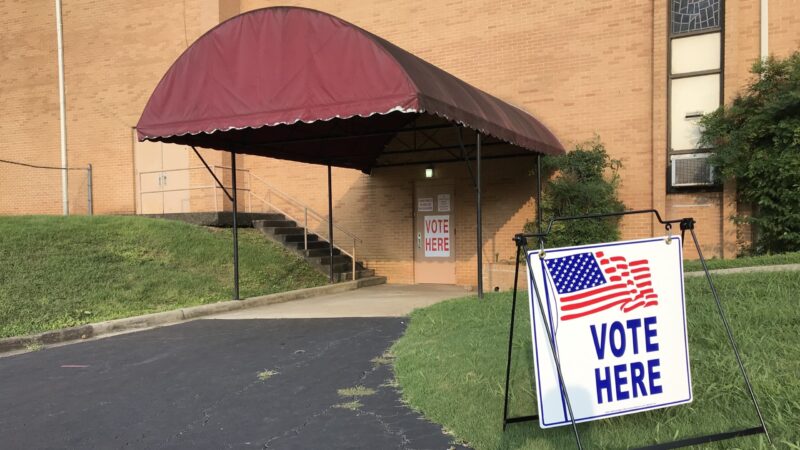New voting districts could change again in some states before the 2024 elections
By David Lieb
The 2022 elections marked the first using new voting districts drawn from updated census data. Those districts typically last for a decade, but they could be short-lived in some states.
Court challenges could force lawmakers or special commissions to draw yet another set of maps before the 2024 elections for representatives in Congress and state capitols.
That means voters who were just shifted into new U.S. House or state legislative districts could be grouped with different communities when they go to vote the next time.
Here’s a look at some places where voting districts could change, and the reasons why.
Race in redistricting
The U.S. Supreme Court on Thursday upheld a lower court ruling that Alabama’s congressional districts likely violated the federal Voting Rights Act by diluting the political power of Black voters.
The ruling means the state’s Republican-led Legislature and GOP governor likely will have to draw new U.S. House districts in which Black voters comprise a majority — or close to it — in two of Alabama’s seven districts, instead of only one.
The ruling also could lead to new U.S. House districts in Louisiana, and potentially Georgia.
While considering the Alabama case, the Supreme Court had put a hold on a similar lower court ruling that Louisiana’s districts must be redrawn to create a second majority-Black district. That’s likely to be lifted. A federal judge in Georgia last year also said some of its congressional and state legislative districts likely violated the Voting Rights Act, but no final decision has been issued.
The Alabama decision is “breathing new life” into similar cases around the country, said attorney Mark Gaber, senior redistricting director at the nonprofit Campaign Legal Center.
Voting Rights Acts challenges are in the early stages in Texas. Lawsuits also allege that state legislative districts dilute the voting strength of Hispanic residents in Washington and Native Americans in North Dakota.
Though based on different legal theories, other lawsuits allege districts were drawn to the detriment of minority votes in Arkansas and Florida. The Supreme Court also has agreed to review a lower court ruling that a South Carolina congressional district discriminates against Black voters.
A new look for a new election
New Assembly districts also are on tap in New York. The state’s highest court last year struck down maps approved by the Democratic-led legislature for the U.S. House, state Senate and state Assembly. It ordered a lower court to impose new U.S. House and state Senate districts for the 2022 elections. But judges determined it was too late to come up with new Assembly districts before the last election.
The courts instead said that the state’s Independent Redistricting Commission should draw new districts. The commission in April endorsed a revised Assembly map, which received quick approval from the legislature and governor to take effect for the 2024 elections.
A pending lawsuit asks that the independent commission also be allowed to draw new U.S. House maps before the 2024 elections.
In North Carolina, a Democratic majority of the state Supreme Court ruled last year that congressional districts drawn by the Republican-led General Assembly were an illegal partisan gerrymander and instead allowed a map drawn by judges to be used for the 2022 elections. While that case was on appeal to the U.S. Supreme Court, voters elected a Republican majority to the state Supreme Court. Those judges in April reversed the previous ruling and declared there was no constitutional prohibition on partisan gerrymandering.
Whatever the U.S. Supreme Court does with the original appeal, state lawmakers are planning to redraw congressional districts before the next election — giving Republicans a chance at winning more seats than the current 7-7 split.
In Ohio, the state Supreme Court rejected multiple maps drawn by Republican officials for U.S. House, state Senate and state House districts. But courts allowed the 2022 elections to go forward anyway using those maps, directing new districts to be drawn before the next elections.
Republican state lawmakers have asked the U.S. Supreme Court to hear an appeal of the congressional map rejection. If they lose, they will have to draw new maps. Meanwhile, a Republican-led commission responsible for drawing state legislative maps is expected to meet later this year to make another attempt.
More partisan challenges
Cases are pending before the top courts in New Mexico and Utah claiming that their congressional districts are illegal partisan gerrymanders — in New Mexico’s case benefitting Democrats, and in Utah’s aiding Republicans.
The New Mexico Supreme Court heard arguments in January but has not ruled on whether to dismiss the lawsuit brought by Republicans. The lawsuit contends Democratic lawmakers illegally divided up the southeastern corner of the state — an oil-producing Republican stronghold — into three districts “for raw political gain.” Democrats won all three districts in the 2022 elections.
The Utah Supreme Court is to hear arguments in July on whether a trial can go forward in a lawsuit contending Republican lawmakers engaged in illegal partisan gerrymandering by splitting Salt Lake County — the most politically competitive area — among four congressional districts. Republicans won all four districts in last year’s elections.
In Kentucky, a trial court last November rejected a partisan gerrymandering claim brought by Democrats against congressional and state House maps adopted by the Republican-led Legislature. That case has been appealed to the state Supreme Court.
Wisconsin, too?
Though there is no current redistricting challenge in Wisconsin, there could be by the end of the summer. That could open the potential for new districts before the 2024 elections.
Voters in April elected a new Democrat-backed judge to the Wisconsin Supreme Court, ensuring that liberals will take over majority control when Judge Janet Protasiewicz officially joins the court in August.
Protasiewicz said during the campaign that she thought the current maps were “rigged” and she wanted to revisit them.
That’s raised hopes among Democrats that the high court could be more receptive to a lawsuit alleging that the current state legislative and congressional districts provide an unfair advantage for Republicans. Though the current districts were approved by the court, they were modeled after previous Republican-drawn districts that gave the GOP a strong edge over the past decade.
Jeff Mandell, a Madison attorney, said he and others opposed to the maps plan to file a legal challenge shortly after Protasiewicz joins the court.
“We think the people of Wisconsin deserve a chance for this new court to take a fresh look at this issue,” Mandell said.
10 new books in March offer mental vacations
March is always a big one for books – this year is no different. We call out a handful of upcoming titles for readers to put on their radars — offering a good alternative to doomscrolling.
Sen. Chris Coons, D-Del., talks about the war with Iran and upcoming war powers vote
NPR's A Martínez asks Delaware Democrat Chris Coons, a member of the Senate Foreign Affairs Committee, about the war with Iran.
The candy heir vs. chocolate skimpflation
The grandson of the Reese's Peanut Butter Cups creator has launched a campaign against The Hershey Company, which owns the Reese's brand. He wants them to stop skimping on ingredients.
Scientists make a pocket-sized AI brain with help from monkey neurons
A new study suggests AI systems could be a lot more efficient. Researchers were able to shrink an AI vision model to 1/1000th of its original size.
U.S. evacuates diplomats, shuts down some embassies as war enters fourth day
The United States evacuated diplomats across the Middle East and shut down some embassies as war with Iran intensified Tuesday while President Trump signaled the conflict could turn into extended war.
Kristi Noem set to face senators over DHS shutdown, immigration enforcement
The focus of the hearing is likely to be on how Kristi Noem is pursuing President Trump's mass deportation efforts in his second term, after two U.S. citizens were killed by immigration officers.







